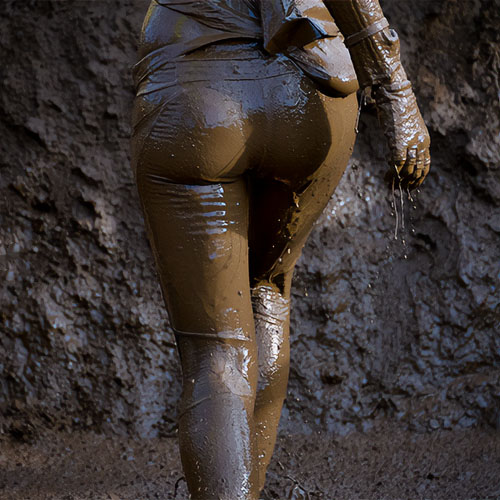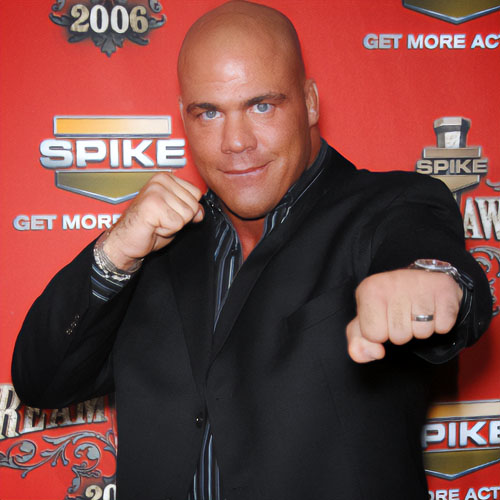Christmas 1988 was no time for rejoicing at the University of Oklahoma. The school’s Sooner football team — the state’s pride and joy — had been placed on probation for illegal payments and recruitment violations. But the worst was yet to come.
Down and Dirty
On the first day of the new year, the team was blown out of the Citrus Bowl by an inferior Clemson team. A few days prior to the game, some of the players had destroyed a hotel room, and one of their coaches, under investigation by the F.B.I. for drug trafficking, got into an altercation at an Orlando country club, causing hundreds of dollars’ worth of damage to the premises.On January 13, 1989, defensive back Jerry Parks got into an argument with one of his teammates and friends, Zarak Peters, a lineman who had gone to school in Houston with Parks, and ended the disagreement by picking up a gun and shooting Peters. One week later, a young woman visiting a player in Bud Wilkinson House — “Bud Hall,” a lavish living quarters for members of the football team — was gang-raped by several players. A few weeks later, quarterback Charles Thompson made the cover of Sports Illustrated in handcuffs after he was arrested for cocaine dealing. A bad winter in Soonertown.
In this exclusive excerpt from Down and Dirty: The Life and Crimes of Oklahoma Football (to be published by Carroll & Graf), Thompson talks candidly for the first time about the shooting, the rape, and their aftermath. This is the story of a star athlete caught up in the mania of Oklahoma football. Many young boys growing up in Oklahoma dream only of the day they can play for America’s most successful college football team — especially under the tutelage of its head coach, Barry Switzer. Switzer, a great American success story himself — going from a dirt-poor existence in rural Arkansas to the ranks of coaching history-was able to attract exceptional black athletes to play for O.U. Switzer was a winner and Charles Thompson wanted to be his quarterback, turning down dozens of offers from other universities and an opportunity to sign and play baseball with the Cincinnati Reds organization.
Thompson got much more than the chance to play quarterback for his idol Switzer, becoming part of a network of millionaire Oklahoma businessmen and bankers who showered their state’s football players with gifts of money, cars, condos, and drugs. Thompson learned that there was little he couldn’t get away with as long as the Sooners put more points on the board than their opponents. Sooner players are the royalty of the state, eating, drinking, and partying for free. Going to classes was an afterthought; a failing grade could always be changed upward.
When the nation learned about the mayhem at the school, it was shocked, unaware that weapons, wild sex, and drugs were not isolated to a few weeks in January 1989. Guns and rifles were stored in several of the players’ rooms and drug dealing was a daily occurrence in Bud Hall.
If you had toured the players’ rooms in Bud Hall, you might have thought yourself in an armory. Many of the guys on the team had guns. There were handguns, hunting rifles, and shotguns all over the place. The scene was an accident waiting to happen. Given the drinking, drugs, women running in and out, and the presence of physical men with volatile tempers, it was only a matter of time before something exploded.
“It was wild,” my roommate Jerry Parks recalled. “There were times when players would trash the bathrooms and overflow the toilets, and get us all in trouble. They would pop firecrackers and set them under your door, not knowing if something was going to catch fire. One time they shot a bottle rocket under my door when I was sleeping. I heard the noise and woke up. I went out and they were all white guys.
“Defensive end Proctor Lane and I didn’t get along,” Parks continued, “because I thought he was a racist. He was the one doing all the pranks on me. He thought they were funny. Once lineman Nigel Clay and Lane had a fight. There were seven white guys up in the dorm getting drunk. They had about two cases of beer there. One of them got the brilliant idea to get into cars and throw eggs at the dorm. They began throwing eggs and hit everyone walking into the dorm. Nigel saw them when they were ready to throw one at him and warned them not to. They figured he was alone and couldn’t do anything, and threw the eggs at him anyway. Nigel responded and it almost started a racial battle on the team.
“There were at least eight ballplayers selling cocaine or crack or weed. I knew 20, 40 guys on the team who used it. Some of the coaches knew, but they were just covering their asses.”
Zarak Peters was a big, strong lineman who came to O. U. a year before Jerry Parks. Jerry was rooming with me and Zarak had the apartment above us on the third floor. Jerry and Zarak had gone to the same high school in Houston and got along well. They were different types-Jerry high-strung and volatile, Zarak laid-back and easygoing. To earn spending money, Zarak was the team barber, charging the players a few dollars for haircuts. He was a good barber, but unreliable at keeping appointments.
After I broke my leg in the final game of the season, assistant coach Jim Donnan gave me a Nintendo game to keep me busy. Zarak came down to my room every night to play the game, and for about a week I’d been asking him to cut my hair. Every night he made an appointment for the next day, but when I went to his room, he said, “Oh, man, CT, I can’t do it today. I forgot about something I have to take care of.” I was getting pissed off at him because I paid him more than the other players. I knew he didn’t have much money and wanted to help him out.
Finally, Zarak promised, “CT, you come up here at seven and you’ll be the first haircut I give.” But when I arrived at seven, he was busy.
“What’s going on, Zarak?” I asked. “You told me you’d cut my hair first.”
Zarak shrugged and said, “Yeah, I know, but I can put your name on a list. You’re number six.”
“Six?” I screamed. “You ain’t shit, man. You tell me to come up here at seven and now you tell me this shit. For the whole fucking week you been promising to cut my hair. I come in here and you got five people in front of me. That’s fucked up. You know, Zarak, you come down to my place any time you want to play my Nintendo game. If I’m ready to leave my room, I let you stay to listen to my music, whatever.”
I went downstairs and Jerry was there with Rod Fisher, another teammate. Kori, my girlfriend, was in the bedroom studying. Jerry and Rod had been drinking. I was furious and Jerry asked me what the problem was. “Jerry,” I said, “why don’t you go upstairs and jump all over your homeboy’s ass and straighten him out. I can’t believe how he played me for a fool.”
Jerry said that he’d go up and get the whole thing squared away. While we were waiting for him to get back, we called to order a pizza. We were waiting for the delivery when the telephone rang and it was Billy Dykes from the team. “Charles,” he said frantically, “you better get up here. Jerry’s going crazy.” In the background I could hear screaming and cursing. I told Rod what was happening, and he agreed that we’d better get up there. I got my crutches and was limping out the door, when Jerry came flying down the stairs. Jerry and I used to call each other “Po,” short for protege, and when he ran into me he screamed, “Po, where’s the motherfucking gun? Where’s my gun?”
Weeks before I’d learned that he had taken Zarak’s gun. Jerry had gotten into a confrontation with some guy and was going to get the gun to shoot him. I took the gun away from Jerry and hid it in my car. That’s where it was when he asked me for it. I tried to stop him, but Jerry was wild, his eyes bulging. “Fuck you, Po, where are the keys to the car? I’m gonna bust a cap in that fucker,” he said, and rushed past me into the apartment to look for the keys. I hobbled in after him to get the keys first and hide them. Jerry had gone into the bedroom where Kori was, thinking she knew where the keys were. When he came out he saw that I had them and grabbed me. We started to wrestle for the car keys, and with one good leg I was struggling to keep my balance. Finally, he slammed me against a shelf and held me until I dropped the keys. Rod Fisher, who had a broken arm, was also powerless to stop Jerry. Billy Dykes had come downstairs and was standing by the door when Jerry rushed by, and though Billy’s a big guy, he took one look at Jerry’s eyes and did nothing to stop him.
I turned to Rod: “Rod, look, you gotta do something. Go down there and try to stop him before he gets to the car. He’s gonna do something stupid.” Rod agreed and went to the car, but he wasn’t quick enough and Jerry was soon on his way back, gun in hand. When he saw Rod he just flung him to the ground. Meanwhile, I went to the balcony and screamed up to Zarak on the third floor, “Jerry’s coming up with the gun. Bolt your door or go to another room, because Jerry ain’t the same!” I had seen Jerry angry and wild, but never so out of control that I feared for my own life. Zarak was acting as if the whole thing were no big deal. “Hey, CT, I know Jerry,” he said. “He ain’t gonna shoot nobody. He’s just putting on a big front. I ain’t worried.”
“If you had toured the players’ rooms, you might have thought yourself in an armory. Many of the guys had guns. The scene was an accident waiting to happen.”
By this time Jerry was running up the stairs yelling, “Where’s that motherfucker now? He won’t push me again.” The .22 was cocked. I hopped upstairs, and when I got to Zarak’s door Jerry was already inside screaming at Zarak: “C’mon, push me now, Zarak, you motherfucker.” He inched closer to Zarak and was a gun barrel away from him. Zarak knocked the gun out of Jerry’s hand, but he got crazier and dove for it on the floor. Another person in the room, Steve, a linebacker from California, tried to put his foot on the gun. Jerry got up from the floor, drove Steve into the wall, picked up the gun again, and started waving it, talking crazy like a wild man: “Push me now, push me now.”
The door to the room was open and I screamed at Rod to shut it before somebody walking by got shot. The way Jerry was waving the cocked pistol, anyone in sight was a target. Then things happened fast. Rod shut the door and at the same time I heard a shot and a scream, “Ah, motherfucker …” Holy shit, I thought, Jerry shot him. People who were in the other rooms came in to see what had happened, and there was Jerry sitting on the floor muttering: “I told that motherfucker not to push me any goddamned more. I told …” Rod got really scared and ran down the back way.
I didn’t know what Jerry was going to do next. I thought I’d better get out of there, too, and started to hop off. Jerry got up and I tried to sneak to the other side of the room to hide. I was scared shit. There were more bullets in the gun. He walked past me and saw me standing against the wall. He looked at me and I said, “Jerry, put that gun away before you do something stupid” it wasn’t registering in me that he’d already done something stupid. “Jerry, I’m your friend. Please put the gun away,” I said, but he grabbed me and pushed me away, and headed out the door to our apartment downstairs.
I panicked. Kori was still in the room and Jerry and she did not get along. I got to the room and Kori was waiting for me: “Jerry came in,” she said, “and tried to trap me. He’s gone crazy.” I got someone to take her out of the room and then tried to find Jerry. I didn’t have to look long, because he was soon back in the room kicking and throwing shit all over the place. I had just gotten my clothes out of the cleaners and he had kicked Cokes and pizza all over them. The place was a mess and I was pissed off. “You dumb motherfucker,” I screamed at him, “you need to cut this shit out. Go put that fucking gun somewhere before you make things worse than they are. You dumb piece of shit!” Jerry’s back was turned, so he wheeled around and pointed the gun at my head. I turned around and walked away, snarling, “Get out of the way, motherfucker,” thinking that if he was going to shoot me, it might as well be in the back of the head.
When I got out to the street, somone said, “I hope Zarak’s okay.”
“What are you talking about?” I asked.
“Man, don’t you know? He shot him. Jerry shot him.”
It still hadn’t dawned on me that Zarak had been shot. It was so weird; I was there, but I hadn’t believed what my eyes had seen.
I went upstairs. Zarak was lying in bed with blood pouring out of him, moaning, “Man, why did that nigger go crazy? Why did he do it? Why, why, why did he go crazy?”
When I went back out, the police and an ambulance had arrived. When they got to Zarak’s room, he wouldn’t tell them who’d shot him. They went around the dorm checking the rooms. Jerry had gone to the room of another defensive back on the team. Reggie Finch, the brother of my former roommate Lonnie, was in the room with them when the police got there. The cops had their guns out, and when the defensive back saw them, he lost control and pissed all over himself. Jerry surrendered without a fight.
Zarak was rushed to the hospital and survived, the bullet lodged in a rib. Despite the amount of blood he had lost, the doctors listed him in stable condition and decided not to remove the bullet. Jerry was taken to the Cleveland County Detention Center in Norman, where he pleaded no contest to the shooting charge and served 82 days in jail with two years probation. The media didn’t know what to make of the shooting and decided that Jerry shot Zarak because the two had had an argument over a borrowed cassette. No, it was dumber than that — it was because of a haircut. Looking back, I’m very sorry that I allowed myself to get so angry at Zarak because he delayed cutting my hair, and about making a big deal about it to Jerry, but I never expected Jerry to shoot Zarak.
“After the shooting we were told to get the guns out because they were coming around to check,” Jerry Parks told me later. “I know for a fact that at least seven players had rifles and pistols. There were handguns everywhere. Some of the coaches had to have known about them. One time we came through with three rifles in the middle of the day. Right in front of the dorms. We parked in the parking lot and came between the coaches’ offices and the dorm and we didn’t have covers for the rifles. One coach said something to the effect of “Y’all need to have cases for those rifles.’
After the shooting the university froze me out. I was going to tell everything I knew about Bud Hall, but my lawyer told me, “No, no, no, he ain’t pressing charges. Just keep quiet, say nothing. Don’t give the university a bad image.’ And I said, “Fuck the university.’ Shit, they were talking about sending me to jail for ten years. This university is going to be here until the day I die. It was the same thing with [you]. The federal attorney wanted [you] to go to jail.”
What angered me after the shooting was the position of the school, especially that of acting president David Swank, who refused to acknowledge any responsibility for what had happened: “At the University of Oklahoma we go to great lengths to protect our students. Possession or use of a firearm on the O.U. campus is in violation of the student code. In enforcing the student code, the University of Oklahoma is more stringent on student athletes than any other students, with frequent room visitations by members of the coaching staff.”
That was Swank’s statement on behalf of the school, and it was a joke. If the school administration was leaving the policing of Bud Hall up to the coaches, they might just as well have left it up to the athletes. The coaches rarely came to the dorm, and they were as aware of the violations as I was. Bud Hall was a 24-hour revolving door of girls, students, and strangers. Nobody checked on us — in fact, none of the players thought it necessary to hide their guns. They hid their alcohol and drugs only because they didn’t want them stolen.
One week after the Parks-Peters shooting, a more horrible incident took place in Bud Hall. There are different accounts of what happened, but court documents state that a 20-year-old woman claimed she was raped by five men. Like the shooting, the rape was one more disaster waiting to happen. Less than three weeks after David Swank’s statement, weapons were found in the room of Nigel Clay, one of the accused (and later convicted) rapists. Dr. Swank refused to discuss any of these incidents for this book, as has everyone in the athletic department.
“I didn’t think that was a big deal … But it was not unusual for a woman to come to a player’s room and wind up having sex with a group.”
There is no excuse for anyone to force a woman, or for that matter, anyone else, against their will. What happened can only be understood within the context of life at Bud Hall. The day after the incident most of the guys in the dorm knew something had happened. Coming from study hall, I bumped into Nigel Clay, a 290-pound lineman who wasn’t noted for being a ladies’ man. Earlier, I had been with some of the guys on the team who were saying that a girl had been raped in Nigel’s room. It was one of those stories where the facts are wrong, but the core of it is right. I asked Nigel what everyone was talking about.
He began talking 90 miles a second and it was hard to follow him. “Oh, man,” he stuttered, “I never did nothing. Fucking Bernard Hall, well, he went and took some pussy last night. They might be in trouble, man. I was under the impression …”
“Nigel, man, slow down,” I said. “What are you saying?”
“Yeah, yeah, man,” he said. “I had nothing to do with it, but you know Bernard. She’s trying to say we raped her, but you know Bernard.”
It was still difficult to figure out what he was saying. My impression was that some girl had gone to Nigel’s room and that both he and Bernard Hall had screwed her. At the time, I didn’t think that was a big deal. It was not uncommon for women to come to the players’ rooms, and after one had had sex with her, his roomie might join him. Sometimes a woman would get upset, but it would blow over.
Women in Oklahoma were no different than men when it came to Sooner football. Everything centered around the team, especially on campus. For good or bad, the players had top priority when it came to women. If a regular student and a football player were going after the same girl, the athlete had a much better chance. To the players it was part of winning — when you reap the benefits, and women were one of the best. After a win we’d say, “Let’s go home and get some V.P. [Victory Pussy].” For the few occasions when O.U. lost, there was another expression: “It ain’t that bad, we’ll go home and get some S.P. [Sympathy Pussy].”
The most attractive O.U. coeds were always in Bud Hall. Even after the rape they still came around. After the rape a curfew was established and women had to be out of the dorm by midnight, but that was more public relations than anything else. Waking up for breakfast. I’d see women leaving the dorm.
Musicians use the term “groupies” at O.U. the expression was “freaks.” There were plenty of women going out with several players at the same time. I know of a few who slept with seven different players within a two-week period. There were others who spent a night sleeping with five, six, seven guys. It was a common sight and you just accepted it as normal. It was like rock music, with our stage the football field and the quarterback the lead singer. Our freaks were as attractive as any of Mick Jagger’s groupies. We didn’t have to force anybody to have sex with us, but like the gifts from the boosters we expected it. None of this excuses what happened in Nigel Clay’s room, but it does shed light on the mentality of the football team when it came to women.
It was common at O.U. for black players to be involved with white women. This wasn’t only a matter of preference — most of the groupies who hung around the jocks were white (O.U. is an almost all-white school). The black girls who did hang out at the dorm usually had boyfriends. The coaches liked the players to think of the team as a family, but when it came to interracial dating, they thought differently. It was one thing if the woman was not attractive, but when a pretty white woman was seen in the company of a black player, the coaches let us know their displeasure. The white players felt the same as the coaches. When I started going out with Kori, a few white players went to her sorority sisters and told them to pressure her not to see me. Everyone on campus was for Charles Thompson on Saturday afternoon on the field, but not on Saturday night in his own bedroom.
Switzer was as bad as anyone else at O.U. when it came to race matters. He loved his black players scoring touchdowns and making tackles, but not scoring or making it with white women. Switzer went as far as to tell me, “Charles, stop fucking with my secretaries,” when I flirted with them and had them type reports for me.
Switzer and some of his coaches carried on with women as much as their players. One of the coaches went to bed with several girls I introduced him to, and when another coach met Kori, he told me, “What’s she doing with someone like you? I could go for some of that pussy.” The issue was never sex with the coaches, but race. At least it was at a dinner some of the players were invited to along with coaches Mike Jones, Gary Gibbs, and Scott Hill. Some white ladies asked Hill for an introduction to a few of the black players. Scott looked at me and said, “Thompson, why don’t you and your buddies go to one of those places where you can meet black women?”
Three of the players, Bernard Hall, Nigel Clay, and Glen Bell, were charged with first-degree rape.
I wasn’t there that night, but I do have a pretty good idea of what happened. Two women, one 17 and the other 20, had come to the campus to see Nigel and go dancing. There were several players in the room when they arrived, and the 17-year-old left to go to another player’s room where, according to a third friend’s trial testimony, she had sex. The older woman left Nigel’s room to buy liquor and returned. After a few drinks somebody grabbed her from behind, threw her to the floor, and her clothes were removed. The lights in the room were out and she couldn’t see the men who raped her. At the trial Jimmy Fennell, a former O.U. player who was in the room that night, testified that Clay, Hall, and Bell had raped her. After 11 hours of deliberation, the jury convicted Clay and Hall. Bell, who did not testify on his own behalf, was acquitted.
Details that came out at the trial cast doubt on the testimony of the victim, but I believe that the essence of her story was true. I never talked to Bernard Hall about what happened, but I don’t doubt his involvement that night. To me it fit right in with his character. Bernard loved to boast that he was a ladies’ man, that girls chased him all the time. Few of us believed him. Bernard was a very aggressive person who liked to throw his strength around; if you wouldn’t do what he wanted, he would try and make you do it. He was not a favorite among his teammates.
Once — and there were other incidents — Bernard had stolen some money from another player. This player, who had left the money in the ashtray of his car, had driven Bernard home and after dropping him off had realized that the money was gone. It was one more theft in which Bernard was the only suspect, and Switzer was told about it. Switzer planned to call a meeting of the players to decide if Bernard should remain on the team. We thought it was unfair for Switzer to place the burden on us, that it was the coach’s decision to make. But because Bernard was a great athlete, Switzer didn’t have the balls to do whatever was right.
Bernard remained outside the meeting room while Switzer told us about the numerous reports of theft he had received. We listened while he tried to explain that Bernard had psychological problems, an illness called kleptomania, and that he was at the mercy of his disease. But, Switzer wanted us to know, he had discussed this with Bernard and told him that the only way he could help himself was to throw himself on the mercy of the team. “Bernard is going to come in this room,” Switzer said, “and he is going to own up to what he has been doing, and I want you guys to make the decision as to whether we keep him on the team.”
When Switzer left the room we all looked at one another. Fuck, what could we do but forgive poor Bernard Hall, suffering from a disease none of us could pronounce. Switzer returned to the room with Bernard and asked him, “Are you sorry about what you have stolen from your teammates?” Bernard looked at Switzer as if he were from another planet, and said, “I never stole anything, Coach.” Switzer looked like he’d died, and we eventually voted Bernard off the team. Of course, when we needed a tight end, Bernard was quickly reinstated.
As I said, I didn’t doubt Bernard Hall’s role in the rape, since there was little in his character to make me question the victim or Jimmy Fennell. Nigel Clay, who was from Fontana, California, had something in common with Bernard, who was from Detroit. Both of them looked down on Oklahomans. They were both slick talkers who thought Oklahomans had no common sense. Nigel’s attitude toward everyone from the state leads me to believe he thought he could get away with anything. Glen Bell was the only one I believed, though I couldn’t understand why a guy like him who had no trouble meeting girls would get involved in something like that. Glen was in Nigel’s room when everything was happening, but it was not unusual for a woman to come to a player’s room and wind up having sex with a group. There are aspects of Glen’s personality I never liked, but I believed that when a woman decided that things were out of control he would not do anything against her will. In the aftermath of the rape the school’s main concern was Barry Switzer’s job; neither David Swank nor Athletic Director Donnie Duncan appeared to show any interest in the welfare of the victim. The issues were not the shooting and the rape, but can we save Barry Switzer?
Charles Thompson did not help matters. At the time the rape and the arrests were announced, I was preparing to meet with three of my buddies to sell 17 grams of cocaine. Within 13 days the University of Oklahoma football team went on a felony rampage — shooting, rape, and cocaine dealing. It was a sad time in Norman, a time to come to grips with reality, but nobody knew how to deal with it and instead it became a public relations issue. Governor Henry Bellmon of Oklahoma didn’t blame the school’s permissiveness toward its football players for what had happened; rather, he was “thoroughly disgusted” with the athletes, and underlined his confidence in the university and support of Barry Switzer “as long as he is on the staff.”
Switzer did not believe that he was responsible for the behavior of his players, although the student newspaper thought differently — one of the few Oklahoma voices with another perspective — and called for his resignation. He let them know that he was not worried about losing his job: “Our regents and our president have told me they think Donnie Duncan and I are the people they want to get this thing under control. I think I am the most qualified person to get it done.”
Switzer was at his best with the media when it came to the rape charges against Hall, Bell, and Clay. None of them had been tried, but Switzer was going to show how tough he could be: “I’ve made my decision. They won’t play here again. And if they’re found guilty in the courts, I want them behind bars. I want them caged.” Being tough is something Barry Switzer does as a matter of convenience. He didn’t want Bernard Hall “caged” after he was caught stealing from other players. When the team was out of tight ends, Switzer quickly reinstated Hall — not, as he explained it to the media, because the players came to him and asked to have Bernard put back on the team, but because the coach knew we were in deep shit at that position.
Switzer continued to play to the press when it came to my arrest for drugs: “It destroyed me, it really destroyed me. I had a good relationship with Charles. I had talked to Charles about him being drug-free, him doing the right thing, because he was a quarterback in the public eye. Now I worry about Charles going the other way, going into that culture, those associations.”
Then Switzer wanted to explain why he warned me the F.B.I. was investigating me: “I’ve been accused of ruining an investigation by doing this. If I let it go on, after what’s happened to me, how would that have looked? When it all came out, and people found out I had known … how would that have looked? If we know that information, we have to protect ourselves.”
“There were at least eight ballplayers selling cocaine or crack or weed. I knew 20, 40 guys on the team who used it. Some of the coaches knew, but they were just covering their asses.”
I’m not blaming Barry Switzer for my drug use and dealing, but I think he deceived the public by portraying himself as the concerned, protective coach. He knew I had been involved with drugs six months earlier, but did little more than make me attend the rehabilitation clinic for less than two weeks. Yes, he talked to me about cleaning up my act in time for the football season, and it wasn’t Barry Switzer who went to Dallas to score cocaine, but me. Still, what did my coach, teacher, and role model do about those “associations” he was so concerned about? Switzer was honest when he told the press: “We have to protect ourselves.” That was his only reaction to the shooting, rape, and drug dealing — protecting the program and himself.
An incident that took place at O.U. in 1987 demonstrates what the overall problem was at the school. Joe Brett Reynolds, a wrestler at O.U., had been caught having another student sit in for him to take one of his final exams. He was tossed out of school and told that he could not reapply for admission for two years. But Joe got a lawyer to appeal the student suspension before the board of regents. The board voted to reduce the suspension to 11 months. Faculty and students couldn’t believe the decision; the faculty met and passed a resolution demanding that Reynolds suffer the original penalty and the student congress initiated a petition that censured the board of regents. There was an uproar over the matter, but in the end Joe Reynolds returned to school 11 months after his suspension. Rules may be rules, but to the O.U. board of regents, Joe Brett Reynolds’s winning wrestling record came first. That is the real problem at the University of Oklahoma.
I can’t speak for Jerry Parks, Bernard Hall, Nigel Clay, and Joe Brett Reynolds — I speak only for myself and am responsible for my own actions — but when people ask me why I would do what I did when I had everything in the world going for me, I can only try to explain by saying that student-athletes are unlike all other college students. Even before high school we are treated differently. We are special because we can run faster, throw faster, and hit a baseball farther than our classmates. We are pampered, and our behavior, never tolerated from other students, is excused.
In 1987 the N.C.A.A. surveyed college athletes about their experiences. This is what one athlete said, as reported in The Wall Street Journal by Frederick C. Klein: “They say that I am a student-athlete, but really I’m an athlete-student. They lied to me on a recruiting trip. Football is No.1 here.
“The pressure put on us to win at all times has resulted in physical violence, such as slapping and punching by coaches. Some days the coaches make you feel as though you are part of a large herd of animals. In other words, they treat you like a piece of meat.
“Somehow, and I don’t know how, the game needs to be played for fun again, and not for the big-bowl revenues or lucrative TV contracts.”
I never want anyone to feel sorry for me, but I identify with what other student-athletes are saying. I never felt like other students, because I was at the University of Oklahoma for the sole purpose of playing football, not for the reasons other students go to college. Nobody, including myself, was concerned about what I should study to prepare myself for the future. My future was immediate: Play and win football games for O.U. I could look forward to only two things after my eligibility — a career in the N.F.L. or working for an O.U. booster. I lived in a world separate from the rest of the student body and had very little in common with them. If I gave my best on Owen Field, I was allowed to do my worst off it. I took advantage of the license given me, and when the F.B.I. put the handcuffs on me in the attorney’s office, I realized for the first time I’d have to take responsibility for myself.


























